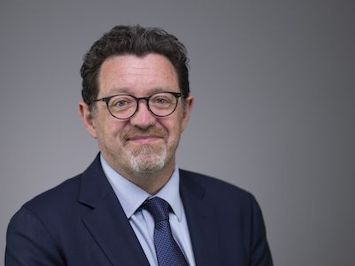Shares of Aberdeen-based global engineering and consulting giant John Wood Group rose as much as 8% on Thursday after former Elliot Management activist fund manager Franck Tuil told the firm in an open letter to buy back some of its stock to avoid becoming a takeover target.
It is the first public campaign for Tuil’s $600 million fund called Sparta Capital, which said it has had six private meetings with the company.
London-based Sparta Capital claims to be a significant shareholder in Wood.
In the letter, Tuil said the Wood share price is cheap enough to make it the target of a takeover and that Sparta believes that the Aberdeen firm has sufficient cash for a share buyback.
Wood shares are down about 33% year to date, trading around £1.35 to give the firm a current stock market value of around £941 million
A Wood spokesperson told Reuters there is a lot in the letter that the company agrees with — but that Wood also believes approach that the company set out on its recent capital markets day to not buy back shares is the right one.
“We believe that the approach set out at our recent capital markets day with a focus on driving sustainable free cash flow is the right one,” said the Wood spokesperson.
Wood Group in September sold its consulting group, Built Environment, to Canadian engineering consultancy WSP Global for a net $1.7 billion.
The proceeds of the sale, Wood said at the time, would be used to reduce the company’s debts.
“We believed that this decision would finally and comprehensively resolve a series of strategic and operational missteps, and we determined that Wood was at a pivotal point in its journey,” said Sparta Capital’s letter, which was signed by chief investment officer Tuil.
However, the sale made no difference to Wood’s share price, the letter noted.
On Wood’s November 22 capital markets day, Sparta said it expected the company to announce a share buyback now that its debt had shrunk, but was disappointed.
“After such a multi-year period of under-delivery, words will set the scene, but only action will drive a change in perception; a change long overdue and which all your stakeholders deserve,” the letter said.
Wood’s low share price and decreased costs make it “vulnerable to takeover,” the letter said.
“We consulted extensively with shareholders regarding the most appropriate use of proceeds from the sale of Built Environment Consulting and the most appropriate leverage range for the company,” the Wood Group spokesperson said.
“We believe that the approach set out at our recent capital markets day with a focus on driving sustainable free cash flow is the right one.”
The letter from Sparta added: “The focus of our engagement with you has been on how to turn the strategic success of the BE sale into the value for shareholders it was expected to deliver. Three overarching themes have underpinned our advice to you …
“As well as highlighting the strength and stability of your business model, you should focus shareholder attention on the underlying ability of the company to generate cashflow …
“You should underpin the confidence and visibility you have in your future prospects with decisive action on shareholder returns; given Wood’s material undervaluation, it is our view that by far the most value-accretive choice is a share buyback …
“You should send the strongest possible signal to your shareholders that after years of under-delivery and underperformance, the board is committed to dramatically improving shareholder returns …
“As we said to you many times, after such a multi-year period of under-delivery, words will set the scene, but only action will drive a change in perception; a change long overdue and which all your stakeholders deserve.
“Finally, as we also shared with you in our discussions, we are concerned that the current significant undervaluation makes the company vulnerable to takeover, in particular given the large central cost line ($77m in 2021 – guided to flat) which seems to us a big opportunity for cost savings going forward and an easy synergy for a potential acquiror.
“As things stand, an opportunistic approach with a credible premium to your current share price, could force your hand and your shareholders will not realise fair value.”
